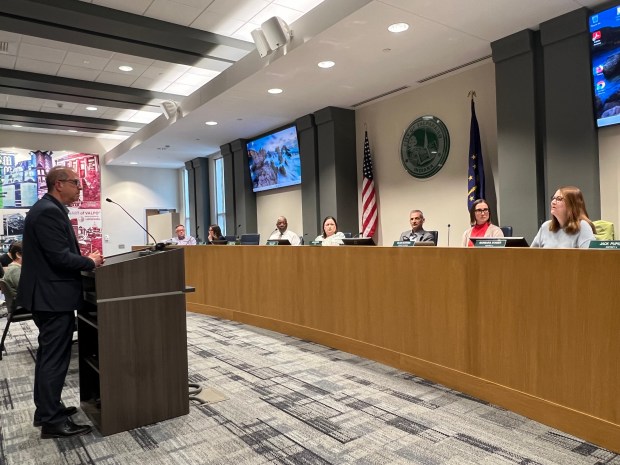The only thing more outrageous than vesting the contents of a petri dish with legal rights is the Alabama Supreme Court’s use of religion to get there.
Two-thirds of Americans oppose Alabama’s ruling that frozen embryos are children entitled to legal protection, but the ruling is entirely consistent with Republicans’ position that life begins at conception. It also duly followed the contours of the 2022 Dobbs mandate, under which the Supreme Court’s religious bloc subordinated women’s legal rights to those of unborn fetuses.
Although Republicans are now scrambling to distance themselves from Alabama’s unpopular ruling, it is the direct result of Donald Trump and Mitch McConnell packing SCOTUS with religious zealots dedicated to outlawing abortion and dismantling the separation of church and state.
How we got here
Plaintiffs in the Alabama case were couples seeking in-vitro fertilization. They sued for negligence and wrongful death after someone wandered into an unlocked cryogenic lab, picked up a vial containing their frozen embryos, burned his hand on the subzero temperatures, and dropped the vial, spilling the embryos onto the floor.
The zygotes, one-tenth of a millimeter in size, about the thickness of a regular sheet of paper, came from a lab. They never saw the inside of a uterus, but the Alabama Court ruled that they were “killed” and entitled to wrongful death protection.
Exercising the same religious hubris displayed by the Dobbs majority, Alabama’s high court assigned legal “personhood” rights to zygotes, saying their location was irrelevant. In Alabama — and in the United States, if Speaker Mike Johnson and Republicans get their way — a fertilized egg now has more legal protection than women. They are entitled to the same protection, whether curated in a cryogenic lab, swimming in a petri dish, or expiring on a post-coitus blanket, which Alabama could soon consider a murder weapon.
Destroying the wall between church and state
The 1st Amendment’s Establishment Clause prohibits the government from making any law “respecting an establishment of religion,” which means courts cannot prefer religion over non-religion.
Apparently not constrained by something so trivial as the 1st Amendment, Alabama Chief Justice Tom Parker used the IVF case to elevate his religious convictions into a defined set of public policy goals. Parker dedicated more than half of his 22-page concurring opinion to expound on his own religious beliefs, complete with biblical quotes, the Ten Commandments, the Book of Genesis, and a 16th Century commentary expostulating on “the significance of man’s creation in God’s image.”
Given the force of Parker’s self-evident religious truths to protect the sanctity of zygotes in a petri dish, he must carve out an exception for death penalty cases. Alabama’s death penalty brokers no argument about the “sanctity of life in God’s image,” but instead gets creative when it comes to strapping a condemned man to a gurney to asphyxiate, poison, or electrocute him. Alabama most recently put a defendant to death using nitrogen hypoxia, the first in the nation. After forcing him to inhale pure nitrogen through a mask until he suffocated, his restrained body violently shaking the gurney beneath him for two full minutes, Alabama’s AG bragged about the execution and offered to teach the method to other states. Some sanctity of life.
Forgive him, Father, he knows not what he’s done
Parker is entitled to his cherry-picked religious beliefs, but he is not entitled to use his state platform to amplify them. When any judge resorts to quoting scripture or the Ten Commandments to explain his interpretation of the law, he reveals his own ignorance about American history as well as the foundational underpinnings of the U.S. Constitution.
Parker is oblivious to the historical realities that drove Revolutionary War heroes to risk their lives, families and fortunes to cast off a brutal monarchy that also controlled the Church of England. Their struggles inspired them to write their own governing treatise, arguably the most brilliant ever written.
Under the 1st Amendment, the framers of the U.S. Constitution took great pains to separate religion from government, because they experienced first-hand the brutalities and gross injustice made possible when they are joined.
The Alabama Court helped itself to Dobbs’ Unequal Protection
Aside from religious fanaticism, the only legally interesting aspect of Alabama’s ruling is the extent to which the court — without irony — relied on the 14th Amendment’s Equal Protection Clause to conclude that zygotes could not be discriminated against.
The irony is that the court understood Equal Protection principles enough to apply them to protect all zygotes equally, if absurdly, but not enough to understand that the state forcing births differentiates legal rights based on sex. If Republicans weren’t motivated by gender animus, but truly wanted to eliminate abortion, they would have mandated vasectomies for men — vastly safer, quicker, cheaper, and medically reversible — years ago. But rather than mandating a quick, risk-free, reversible procedure for men to eliminate abortion, Republicans instead force women to undergo 9 months of pregnancy, which can cause potentially fatal consequences, extended physical confinement, permanent changes to their bodies, reduced earning capacity, and hours of excruciating labor pain to give birth against their will.
The Republican message that life begins at conception has been entirely consistent, which complicates their RNC-orchestrated reaction to Alabama. Apparently, God wants Republicans to protect zygotes until the RNC tells them not to. The broader dangers of infusing judicial opinions with religion may be an intellectual bridge too far for Republicans to cross, despite the searing clarity of Thomas Jefferson’s roadmap.
Sabrina Haake is a Chicago attorney and Gary resident. She writes the Substack newsletter The Haake Take.



